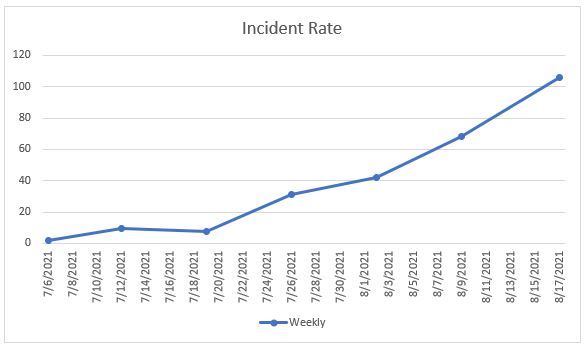Minor was a nurse who “fell into teaching.” She earned her bachelor’s degree in nursing at Vanderbilt University in 1957, a time when there were very few collegiate nursing programs and even fewer master’s programs. After graduating, she worked as a nurse before joining the Murray State University faculty. In January 1982, she was brought on as a clinical instructor in nursing at Murray State by Dr. Ruth Cole, former chair of the nursing department. She worked through fall 2016, when she taught her last semester at the age of 81.
During her time at Murray State, Minor saw the nursing department change hands from the College of Human Development and Learning to the College of Science, then to the College of Health Sciences and Human Services before finally forming its own autonomous school, the School of Nursing (now the School of Nursing and Health Professions).
Change like this was constant throughout her career. Today, she said, “nursing is in charge of nursing,” which was not always the case. She helped create that change by joining fellow nurses in taking charge of certain aspects of healthcare. Over the years, she saw nursing evolve into a respected profession.
Throughout her entire career as a nurse and an educator, she witnessed an evolution in how women are viewed in the workplace. Today, it’s “much more accepted for women in any field to reach their goals,” she said.
Minor added, “It is much more acceptable and encouraged for men to be in the nursing profession than when I started more than sixty years ago.”
On top of it all, she has faced major technology changes, most notably computers and cell phones. While these changes were frustrating at times, Minor learned and grew accustomed to the new technology.
“Students today come in knowing technology and knowing change is inevitable,” she said. This knowledge makes it easier for current students to adapt to future challenges they will inevitably encounter.
Despite all the changes Minor has seen in her career, one thing has remained constant: her love of students. Her drive to continue working into her 80s was fueled by a dedication to helping them progress. After all, she knows the impact of education reaches far beyond the here and now.
“When I teach, I touch the future,” said Minor.
She added that Murray State’s nursing program has had many gifted undergraduates over the years, but she especially loved helping the students who had to work extra hard to succeed.
"I've had several students that I thought, when I first met them and advised them, 'they're not going to make it.' They came in taking 099 courses,” said Minor. However, these students often surprised her.
“The desire was there, and then all of a sudden I realized the work ethic was there,” she continued. “I worked with one that is a nurse practitioner now ... and every day I just grin, because what it took her to get through the nurse programs was her tremendous work ethic. And she is excellent. So I think my favorite moment in nursing is to see those who had to work for it and made it. That, to me, is what teaching's all about."
No matter a student’s skill level, Minor would work to help get them where they needed to be. Her leadership style was easygoing, but she wasn’t afraid to be firm, either.
“Sandy has been a 'grounding' force for the nursing programs. Her intelligence, practical perspective and gentle-professional demeanor has impacted every student she has taught,” said Dr. Marcie Hobbs, dean of the School of Nursing and Health Professions. "Many of us as faculty have used Sandy as a sounding board and a ‘cheerleader’ for our personal and professional accomplishments. Fortunately, even though she is retired, she is still a part of our lives.”
Dr. Jessica Naber echoed the sentiments expressed by Hobbs. A former student of Minor’s, Naber also worked alongside Minor as an assistant professor in the School of Nursing and Health Professions. She said Minor set high standards but earned the utmost respect from her students. She has been a role model for students and faculty alike because of her tough yet caring demeanor.
“When I started teaching alongside Sandy, she made sure that I felt comfortable. She was a true mentor, explaining the ins and outs of teaching just as she had shared the ins and outs of nursing practice when I was a student. She prepared me for numerous unpredictable situations, and she showed me what it was to be a true professional and a compassionate nurse and educator,” said Naber.
Minor’s advice for current and future nursing students is to decide early on what aspect of healthcare they enjoy.
“Take the time to figure out what it is you like to do and what it is you don’t,” said Minor, who tried obstetrics and pediatrics but quickly realized they weren’t the right fit for her. She then found her niche in medical-surgical nursing.
Minor added that she believes gaining hospital experience is the best way for nursing students to start their careers.
When reflecting on her time at the University, Minor feels proud to have worked with such an “excellent program” and misses seeing her fellow faculty members regularly.
“We were there for each other during both the good and the hard times, and they were always willing to fill in for you when you needed them,” she said.
Between the close-knit faculty and hard-working students, it’s easy to see why she didn’t retire sooner.
“I loved every single minute,” she said.





